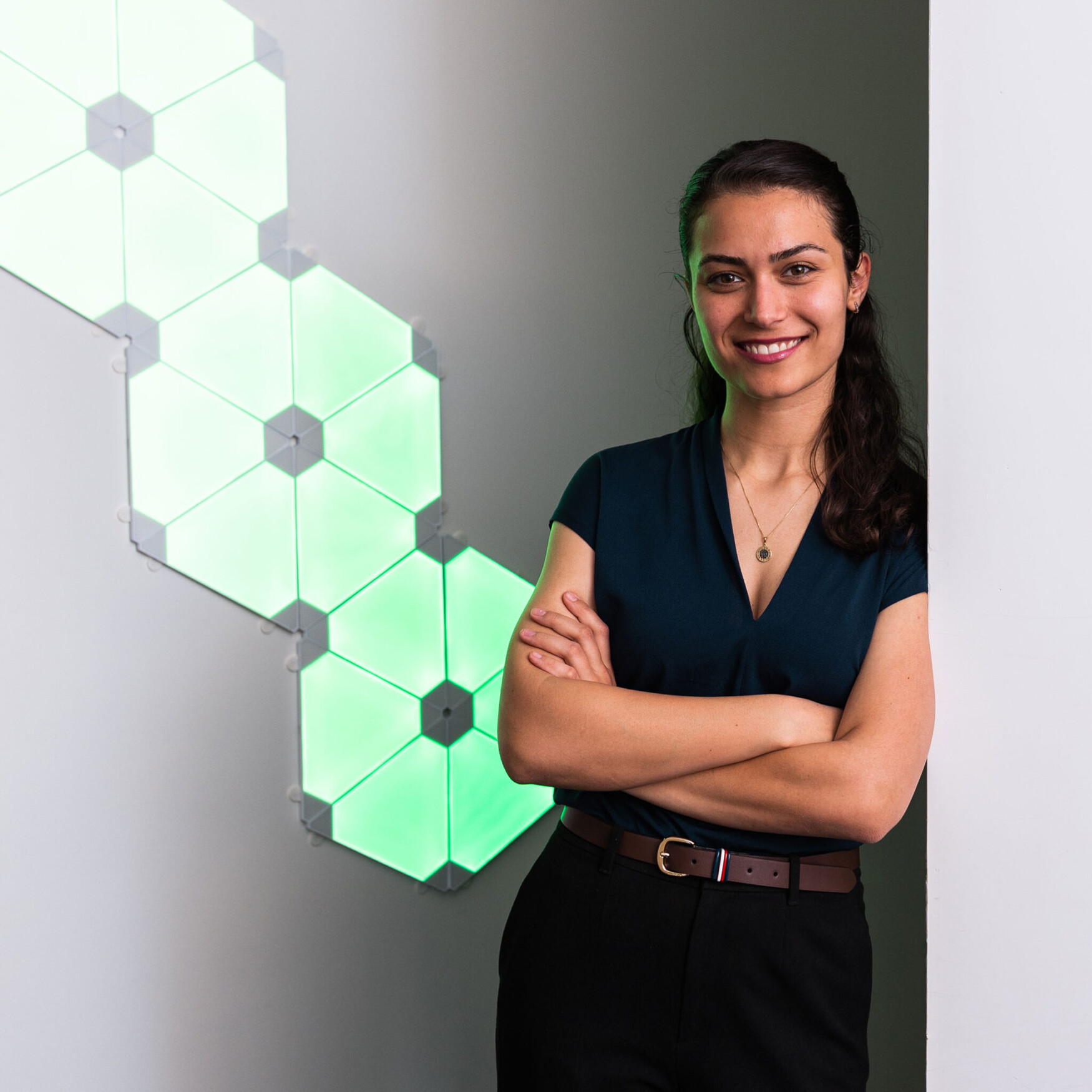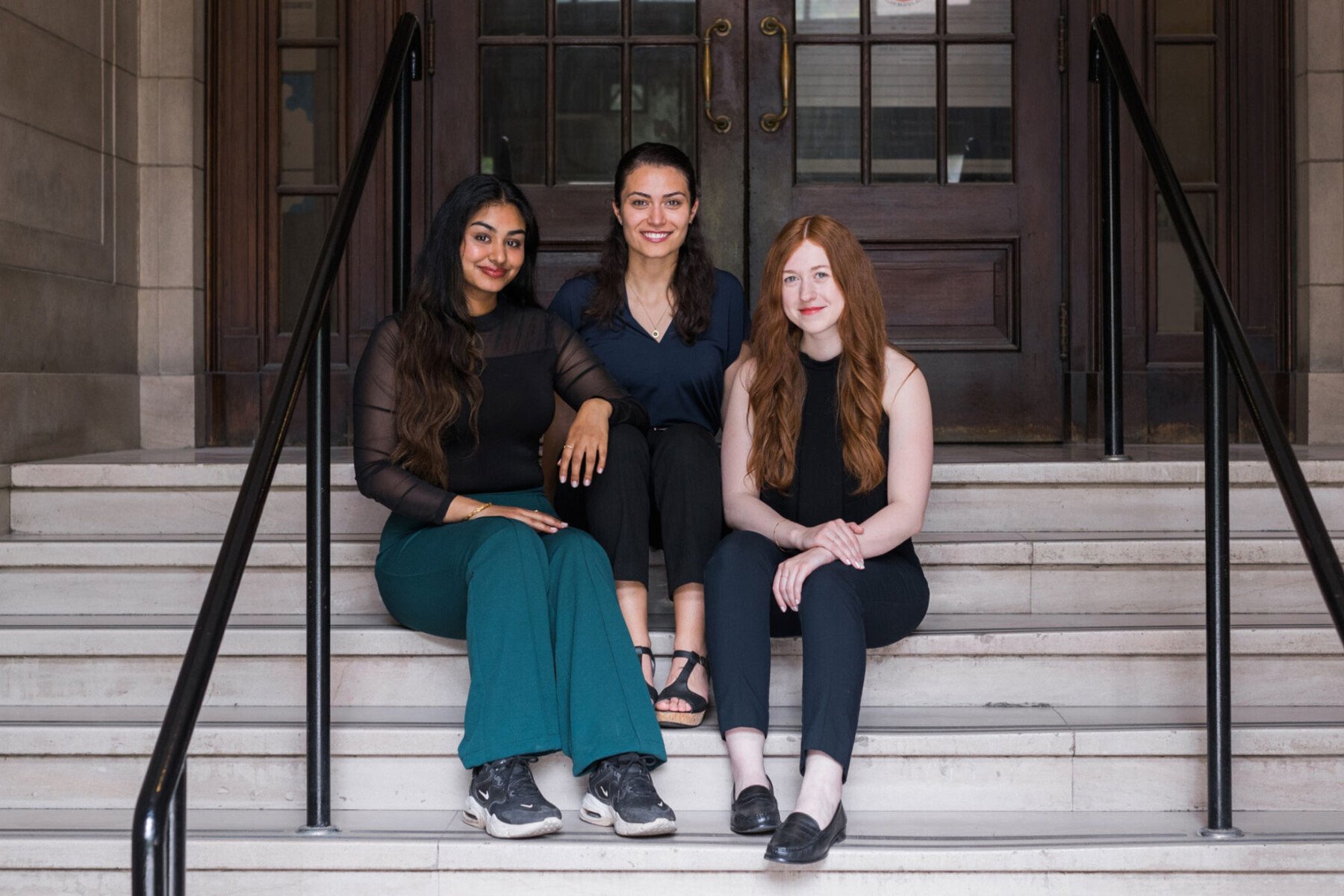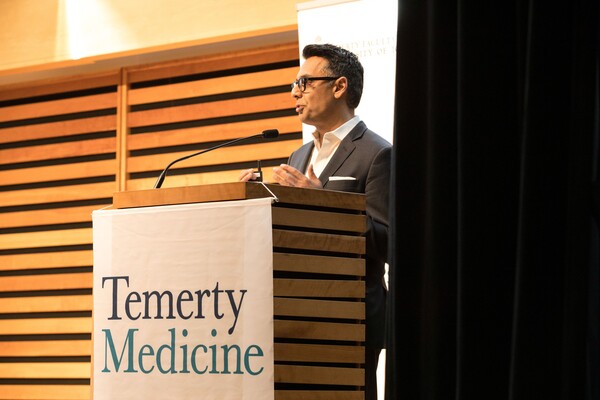
An eye-opening seminar turned scientist Jessica Jenkins (BSc 2021 UC, MHSc 2023) into a student entrepreneur. Energized to solve a deadly problem—people with spinal cord injuries dying from urinary tract infections—the MHSc student and two classmates launched a startup, Specifix Dx, to translate their research into a practical, life-saving tool.
As University of Toronto innovators push the boundaries of what’s possible at Collision Conference this June, Jessica, shares her journey from imaginative scientist to award-winning entrepreneur, with support from the True Blue Fund.
I thought I was going the conventional academic research route… until the pandemic.
I was very excited when I got into U of T for my undergrad in neuroscience and psychology. I love the energy here. But when the pandemic hit, it forced me to reflect on my motivation. As cliché as it sounds, I realized that what really excites me about science is its potential to change lives in the real world. It was a no brainer to start my master of health science in the Translational Research Program—which involves identifying problems by talking to real people, then using science and innovation to address those problems.
I’d taken courses on the spine and brain, but never spoken with someone with lived experience.
So, when my class attended a seminar by Praxis Spinal Cord Institute, what I heard really stuck. I learned that urinary tract infections (UTIs) are the second most common cause of death for people with spinal cord injury. A lot of people I know experience UTIs all the time, but it’s usually nothing more than an inconvenience…
Yet here’s this population who die from this every day.
UTIs are diagnosed through symptoms and two urine tests. But people with spinal cord injury don’t always perceive symptoms, such as a burning sensation during urination. Without symptom perception, the infection can go untreated for longer, spreading to the kidneys and leading to sepsis. And although existing tests are pretty accurate in able-bodied young people, they give a high rate of false-positive UTI indications for several populations, including older adults, some people living with diabetes, and people with spinal cord injury.
We plan to measure a biomarker that is a more reliable indicator of infection.
Our rapid test should work similar to a pregnancy test. You just dip the tip in urine, wait for 15 minutes, and check if it’s positive or negative. It will allow people to test at home.
And it will help doctors too. Because they are cautious about avoiding sepsis, they give antibiotics even if they’re unsure about the diagnosis. However, unnecessary antibiotic exposure increases the risk of future mortality due to antibiotic resistance. Our tool can help patients stay healthy for as long as possible.

My friends were super excited by the potential to make a difference.
Jaspreet Randhawa (MHSc 2023) and Siobhan Wilson (MHSc 2023) were my classmates and we work really well together. Jaz has a background in computer science and technology development, and helps to run her family business, so she’s the CTO. Siobhan is the COO, well versed in clinical research and passionate about the business and regulatory aspects. I’m the CEO; I take on the science and executive decision making.
We were very lucky in our introduction to entrepreneurship.
In January of 2022, I signed up for a six-month student program through U of T’s Ideation Clinic, an incubator focused on early-stage entrepreneurs. We got tons of mentorship through that program! We also used other resources in the U of T Entrepreneurship ecosystem, working with the amazing H2i, the Health Innovation Hub, and at ONRamp. It’s been wonderful to brainstorm with our peers.
The Desjardins Startup Prizefrom the True Blue Fund was our first in-person pitch competition. The stakes were high!
We knew we’d be meeting a lot of important entrepreneurs and venture capitalists (VCs). So we worked for weeks refining our three-minute pitch.
We were fortunate receive $5,000 in funding and it’s going to be super useful. But I think just as important was how much we learned about the perspective of VCs—what their priorities are, what they want to know. We took what they said to heart and incorporated their feedback into a massive pivot after the competition, so a huge shout out to those judges for their kindness, time and insights.
I would also like to give a huge thank you to U of T and the donors.
Because of donors, there are monetary resources to facilitate things like incubators and mentorships and workshops and expos. It’s a kind of chain reaction that goes on indefinitely and the benefits are immense. I really hope that if this business takes off, my teammates and I will be able to give back to the community. Because I know how important it is.
Explore related campaign priorities: Power innovation & entrepreneurshipSupport student success


